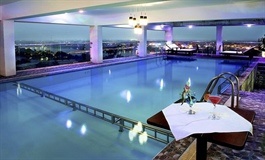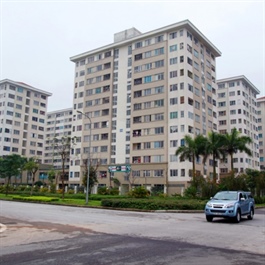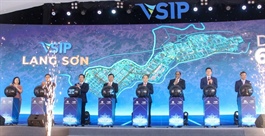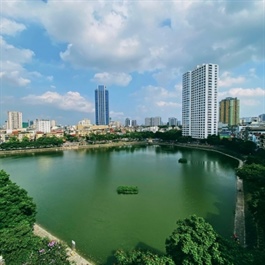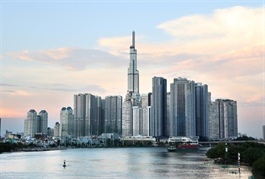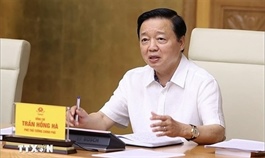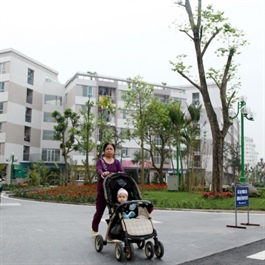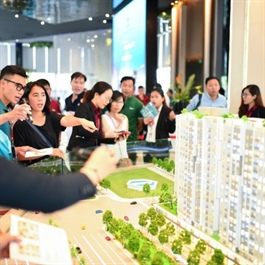No plain sailing for eco-IP conversion
No plain sailing for eco-IP conversion
The creation of eco-industrial parks should increase competitiveness, but the implementation process is leaving developers with prolonged headaches.

Despite regulations on management being issued over two years ago that provided clearer definitions of export processing zones, supporting industrial parks (IPs), eco-IPs, and high-tech IPs, many regulations remain confusing to implement when converting one to another.
Currently, the Ministry of Planning and Investment is in the process of consulting on a draft circular guiding Decree No.35/2022/ND-CP, which experimentally applies a set of 23 eco-IP indicators of Vietnam. At the same time, it is moving forward with the development of the Law on Industrial and Economic Zones, which is expected to be implemented in 2025.
According to Giang Ngoc Phuong, deputy general director of Hiep Phuoc IP in Ho Chi Minh City, to be recognised as an eco-IP, businesses in the area have to participate in cleaner production activities and effectively use resources, while cooperating in production to carry out symbiosis activities. But this process has not been easy. “For example, there is no corporate income tax support policy if a business achieves eco-business certification, as well as tax policies for infrastructure companies to encourage them towards getting green certifications,” Phuong said.
According to Phuong, converting from an existing IP is highly complex compared to building one from scratch.
“It is also difficult to mobilise businesses in the IPs to participate in the conversion process, since the majority of them have no experience or knowledge about conversion from traditional to eco-IPs, while there are also many standards set by the international market,” he added.
In Hiep Phuoc IP, many plants’ boiler gas systems are expensive to convert. In addition, symbiosis between businesses has been difficult - when one business uses another’s waste, the two businesses cannot exchange directly but must go through a unit with a waste treatment function, which takes up too much time.
Hiep Phuoc IP was one of five facilities participating in an eco-IP intervention programme in Vietnam funded by the Swiss State Secretariat for Economic Affairs and implemented by the United Nations Industrial Development Organisation, in cooperation with the Ministry of Planning and Investment. It was implemented from May 2020 to April this year, focusing on supportive activities for businesses in industrial zones (IZs) to convert from traditional IZs to eco-IPs.
The other complexes involved were Amata Bien Hoa in Dong Nai province, DEEP C Dinh Vu in Haiphong, Hoa Khanh in Danang, and Tra Noc 1 and 2 in Can Tho.
The results of the programme included over 600 cleaner and resource efficient production solutions. Of those, 217 were adopted by 88 enterprises, savings $2.88 million per year through reducing consumption of energy, resources, and materials, reducing over 8,900 tons of CO2 per year.
Meanwhile, chemical and environmental expert Nguyen Thi Kim Lien said that current policies are lacking financial incentives for businesses to implement industrial symbiosis of renewable energy, while investment procedures for renewable energy projects are still complicated.
“In particular, policies in reuse and recycling of waste are not strong enough to develop the market for recycled products,” Lien said.
In addition, if a business wants to reuse treated wastewater, there are currently no instructions and technical regulations to use this water for watering plants and as input water for businesses, she added.
Dr. Can Van Luc, member of the National Financial and Monetary Policy Advisory Council, said that among more than 415 existing IPs, there are only about a dozen operating towards eco-IPs.
“The remaining parks must be converted. But the processes, rights, and responsibilities of businesses when converting must have a clear roadmap,” Luc said.
“It is necessary to develop a separate legal system applicable to cases of new establishment, or applied to cases of converting old, traditional IPs into eco-IPs,” he suggested. “In particular, there needs to be support in terms of policy, technology, finance, and close connection mechanisms between relevant parties, as well as suitable incentives.”







